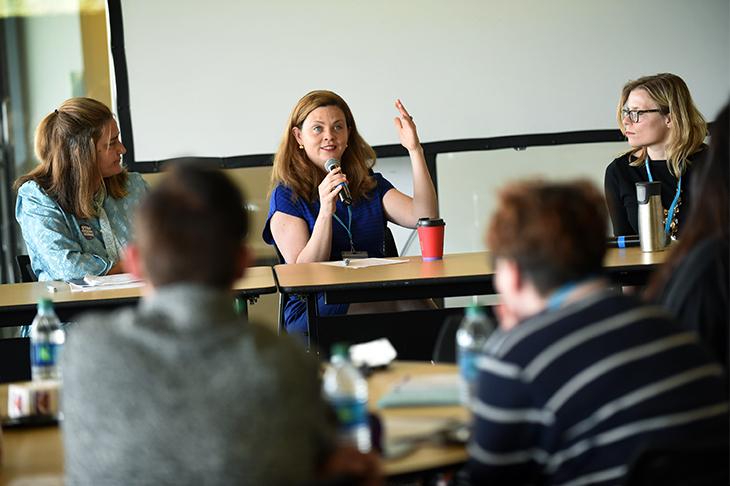Students learn about advocacy in action
Almost 100 activists from around the nation gathered at Tulane University last weekend to tackle a pressing problem on campuses: sexual assault. Organized by undergraduates Nina Baumgartner and Hannah Novak with support from Newcomb College Institute, the interdisciplinary conference featured panel discussions and strategy sessions that covered everything from prevention to victim recovery and self-care to techniques to mobilize for action.
“It’s about opening up the conversation and having a dialogue within those different approaches,” said Novak, a sophomore majoring in public health.
The first of its kind in the state, organizers had an overwhelmingly positive response.
“Pop culture isn’t going to solve this problem alone.”
student Nina Baumgartner
“People are really passionate about this topic. We reached out to all of the colleges and universities, and even some high school administrators as well,” Novak said. “They’re going through a lot of similar experiences.”
Baumgartner, a senior studying neuroscience and gender and sexuality studies, agreed. “That’s why we wanted to have community activists and military victims advocates.”
Faculty and administrators from across the Tulane campus lent their voices as well, providing information about the resources available to the Tulane community, as well as their support to the student activists.
This issue is having a particularly prominent moment in the national conversation, from President Obama’s It’s On Us campaign to Lady Gaga’s Oscar-nominated song “Til it Happens to You,” in the 2015 documentary The Hunting Ground, which deals with campus rape in the United States.
Novak said that anything that can start the conversation is important. “Sexual assault is very hard for people to discuss, and it can put you in a vulnerable position, so anything that makes that easier is a good thing.”
But talking about it is not enough and action is required, said Baumgartner, a double major in neuroscience and gender & sexuality studies. “It’s doing some of the work, and we have to come at it from a lot of different angles. Pop culture isn’t going to solve this problem alone.”
Aidan Smith is external affairs officer for the Newcomb College Institute.

